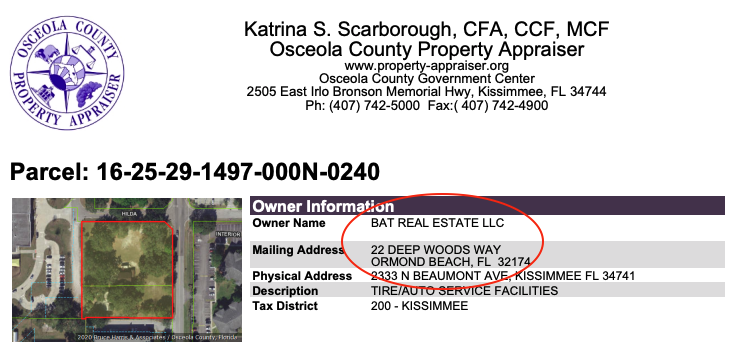One of Shakespeare’s most famous lines contends that a rose “by any other name would smell as sweet.” While that might hold true in the pages of Romeo and Juliet, it’s not the case when it comes to putting a legal business name on a mechanics lien claim. In fact, listing an incorrect or incomplete moniker for a person or entity on your document – even if it’s your own name – can be a costly mistake.
On a mechanics lien, every detail matters
In a case from Connecticut, Greco Construction v. Edelman, the Connecticut Court of Appeals ultimately dismissed the lawsuit filed by “Greco Construction” for listing only a portion of the business name that technically didn’t exist.
The court pointed out that because “Greco Construction” was actually a trade name owned by Brian Greco, the full and correct name for his business entity would be “Brian Greco d/b/a Greco Construction.” “Greco Construction” was not an entity incorporated or otherwise organized under the laws of the State of Connecticut, and therefore did not exist.
To a lot of people, it probably sounds incredibly picky to throw out a mechanics lien claim over such a trivial detail. But this is part of the difficulty of filing a valid lien claim. It’s critical to get every single piece of information on your lien claim correct – no matter how small it may seem.
Finding a legal business name
Mr. Greco could have avoided the issues he encountered with his claim by simply listing the full and complete name of his own business. For some people, that might be easier said than done. By now you might be wondering how one would go about researching this kind of information in the first place.
Fictitious names, trade names, and d/b/a (Doing Business As) names generally refer to the same thing. Each state has its own requirements that cover naming conventions. The state-sanctioned legal name can be found on business documents typically on file with either the Secretary of State or your local County Recorder or Clerk’s office.
Some of the better websites allow you to search for business and property records online. For example, the Colorado Secretary of State and Louisiana’s Secretary of State websites make searching for a legal business name incredibly simple. Of course, the quality of local government webpages varies widely.
When a business name search isn’t enough
In Osceola County, Florida, a contractor recently filed a lien that listed “Bar Real Estate LLC” as the property owner.
With a cursory glance, it appears that the business name was written correctly. There are no obvious misspellings. In fact, if you search the Florida Secretary of State website, you’ll find an exact match for Bar Real Estate, LLC!
For this mechanics lien, however, the actual property owner was a totally different company, with a different address. When a member of Levelset’s research team went to verify the owner’s information on the county appraiser’s website, the error was revealed.
The actual name of the owner on the lien should have read Bat Real Estate, LLC – not Bar Real Estate, LLC as the lien originally indicated. While both are legitimate companies in Florida, only one of them is the owner of this property.
While this may seem like a small typo, it identifies the wrong company. Of course, courts have ruled both ways on the issue, further muddying the waters. That makes the outcome of a lien claim highly questionable.
Thankfully, we caught the mistake before the filing deadline. The claimant quickly filed an amended copy of their lien, listing the correct spelling of the owner’s name.
The 4 worst mistakes that subs and suppliers make on their mechanics liens
What to do when your lien has a mistake
So what do you do if you realize that a piece of information on your recorded document has an error? First, consider that some small mistakes on their own may not entirely invalidate a claim, though it’s best not to leave it up to a court to decide the fate of your lien based on a typo.
Amend your lien claim (if you can)
One option that may be available is amending your claim like the Bat Real Estate example above. Amending your mechanics lien claim can help ensure the correct information is reflected should you need to enforce your lien, with that said, the best practice is listing the correct information from the get-go.
Know your lien deadline
A key consideration when amending, however, is whether or not the deadline for filing your lien has passed. Generally speaking, filing your amendment prior to the expiration of your original lien deadline is crucial – in Colorado, it’s even required by lien statute.
However, Colorado is one of the only instances of clear direction on the topic. Most states don’t have firm rules codified in statute regarding the process of amending a mechanics lien. As a result, the availability of an amendment depends on several factors.
Get the details right
If you are able to file an amendment, follow all county requirements applicable to the original lien, like margins and fees. The same formatting and rules also apply when submitting your amended claim.
If you’re unsure of whether or not your claim can – or should – be amended, it’s always a good idea to consult a construction attorney.
Find your Florida county office
Find information about any county recorder office in Florida, from contact info to lien filing requirements and costs.

